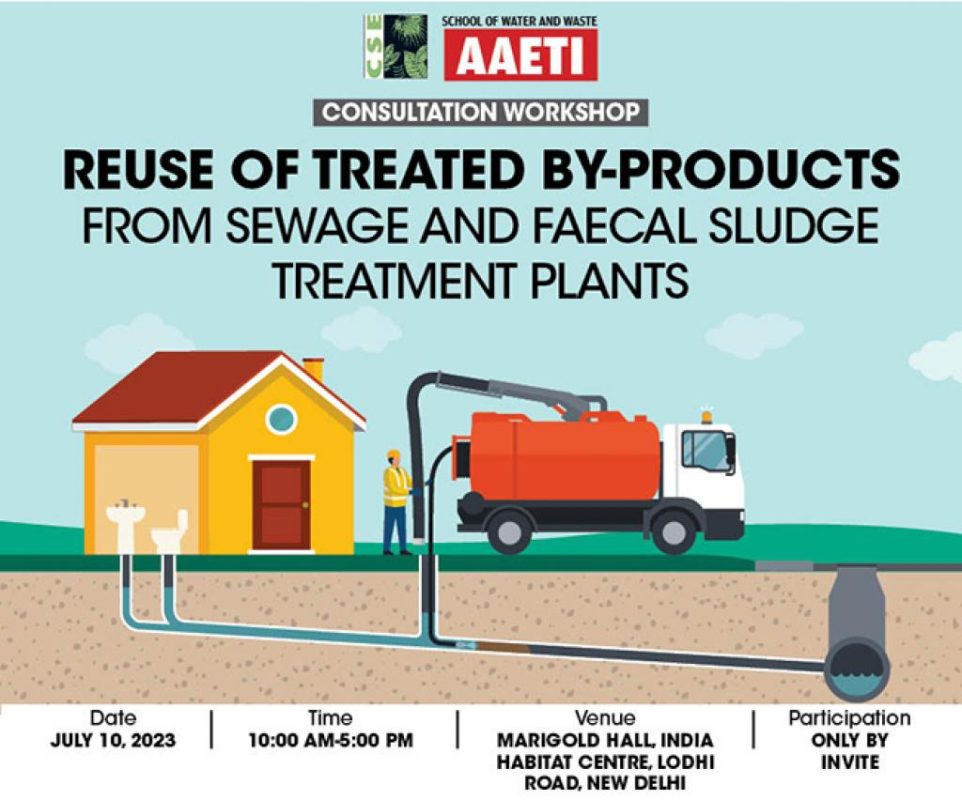Consultation Workshop: Reuse of treated By-products from sewage and faecal sludge treatment plants : CSE

![]()
Date: 10 July 23 / Time 10:00 am to 5: 00pm / Venue: New Delhi / Participation: Only by Invite
The Centre for Science and Environment (CSE) is a public interest research and advocacy organisation based in New Delhi. CSE researches into, lobbies for and communicates the urgency of development that is both sustainable and equitable. The scenario today demands using knowledge to bring about change. In other words, working India’s democracy. This is what we aim to do.The challenge, we see, is two-pronged. On the one hand, millions live within a biomass based subsistence economy, at the margins of survival. The environment is their only natural asset. But a degraded environment means stress on land, water and forest resources for survival. It means increasing destitution and poverty. Here, opportunity to bring about change is enormous.But it will need a commitment to reform – structural reform- in the way we do business with local communities. On the other hand, rapid industrialization is throwing up new problems: growing toxification and a costly disease burden. The answers will be in reinventing the growth model of the Western world for ourselves, so that we can leapfrog technology choices and find new ways of building wealth that will not cost us the earth. Our aim is to raise these concerns, participate in seeking answers and in pushing for answers, transforming these into policy and so practice. We do this through our research and by communicating our understanding through our publications. We call this knowledge-based activism. We hope we will make a difference.
Centre for Science and Environment (CSE) is organising a Consultation Workshop to understand the inherent challenges and explore the opportunities in reusing treated by-products from wastewater and faecal sludge treatment systems. The discussions will be conducted under two specific thematic areas.
THEME 1
Reuse of treated wastewater
India faces significant water scarcity issues, with many regions experiencing water stress due to increasing population, industrialisation and agricultural demands. Reusing treated wastewater can help alleviate this stress by providing an additional water source for various non-potable applications. One of the primary applications of treated wastewater in India is irrigation in agriculture. Other options could be for various industrial and commercial purposes, such as cooling water for power plants or for construction activities. Under this theme, the points of discussion will focus on current status, challenges, opportunities and best practices.
THEME 2
Reuse of bio-solids
FSTPs play a crucial role in transforming faecal sludge into valuable bio-solids, which can be reused in various applications. This promotes the concept of circular economy by recovering resources from waste and reducing the environmental impacts. Under this theme, the workshop will dwell upon the challenges and potential benefits of reuse of such bio-solids, and the importance of responsible and sustainable waste management practices.

